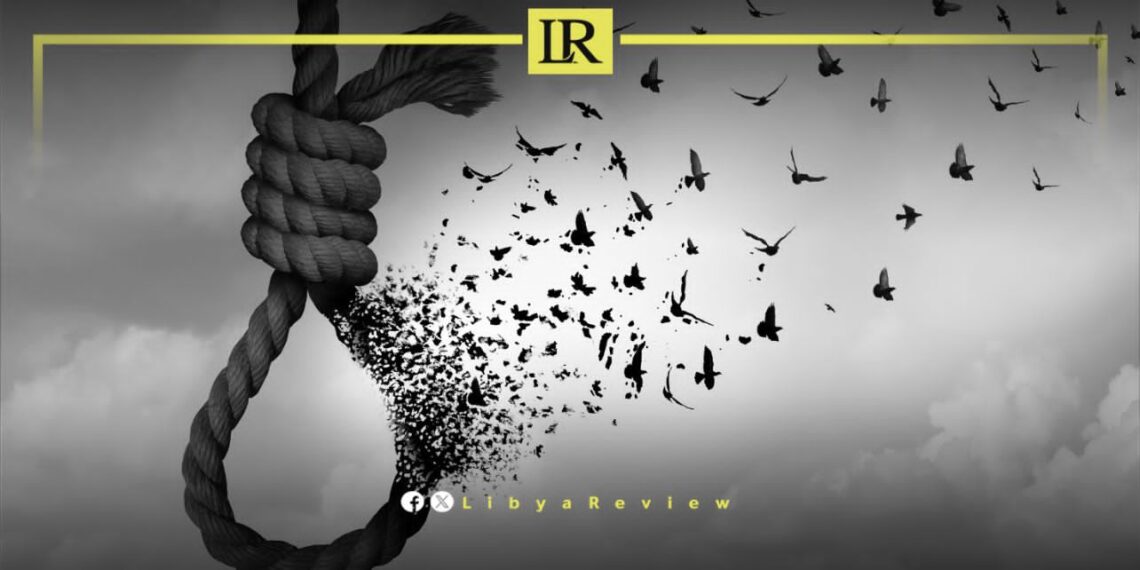The National Institution for Human Rights in Libya (NIHRL) has warned of the rising incidence of suicide in the country. Years of conflict and armed strife have left catastrophic impacts on the mental health of Libyans, especially among the most vulnerable groups such as internally displaced persons, women, girls, children, prisoners, and victims of torture.
According to the NIHRL, a recent report from the Ministry of Interior has highlighted alarming statistics on suicide rates, raising serious concerns. The Institution notes the strong link between psychological stress, depression, violence, family abuse, torture, and cyber extortion, all of which can lead to suicidal behaviour.
However, the limited and fragmented data from the Ministry and other local sources make it difficult to build a comprehensive understanding of the causes and motivations behind this phenomenon. The lack of reliable statistics is a major issue for a country that cannot even conduct a general population census.
Officials often attribute suicides to supernatural causes rather than addressing the real underlying issues. For instance, Hind Al-Faidi, head of the suicide study committee at the Ministry of Social Affairs, cited reasons like demonic possession and witchcraft. This avoidance of reality hampers efforts to understand and tackle the problem.
Despite the absence of precise official statistics, local figures combined with data from the World Health Organisation, which reported a suicide rate of 4.5 per 100,000 people in Libya in 2019, indicate a silent spread of the issue. This growth is exacerbated by a lack of awareness, a shortage of psychiatric care facilities, and the high cost of mental health medication.
People with suicidal thoughts or who have survived attempts often find themselves in an environment lacking in support and understanding, compounded by social stigma and inadequate medical care. The Institution stresses the urgency of addressing this serious issue through coordinated efforts by the Ministries of Social Affairs, Women, Health, and Interior, along with civil society organisations, the Centre for Social and Psychological Studies, and religious authorities.
Key factors driving the suicide rate include psychological, social, and economic pressures, the negative impacts of displacement and warfare, cyber extortion, substance abuse, and a lack of religious and spiritual guidance. The Institution urges all relevant authorities to conduct thorough studies to identify the root causes and to develop strategies to combat this phenomenon.
It also emphasises the need for awareness campaigns, educational seminars, and the establishment of psychiatric facilities. It calls on local media, civil society organisations, and social media influencers to raise awareness about the dangers of suicide and to advocate for mental health support.


